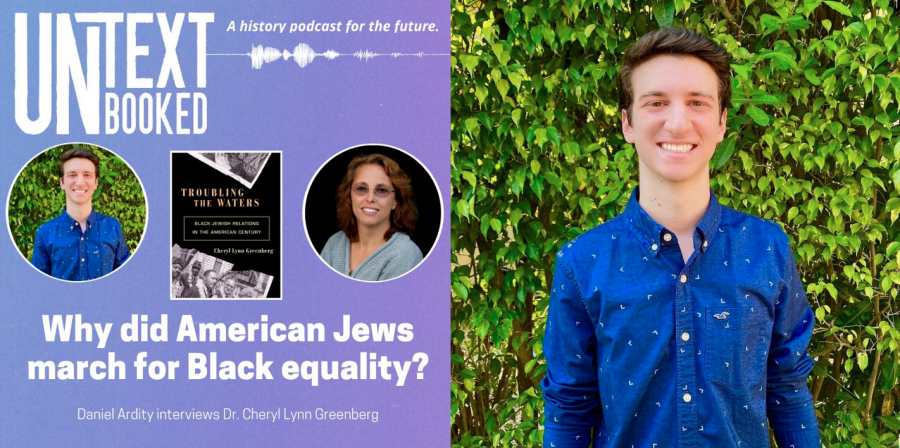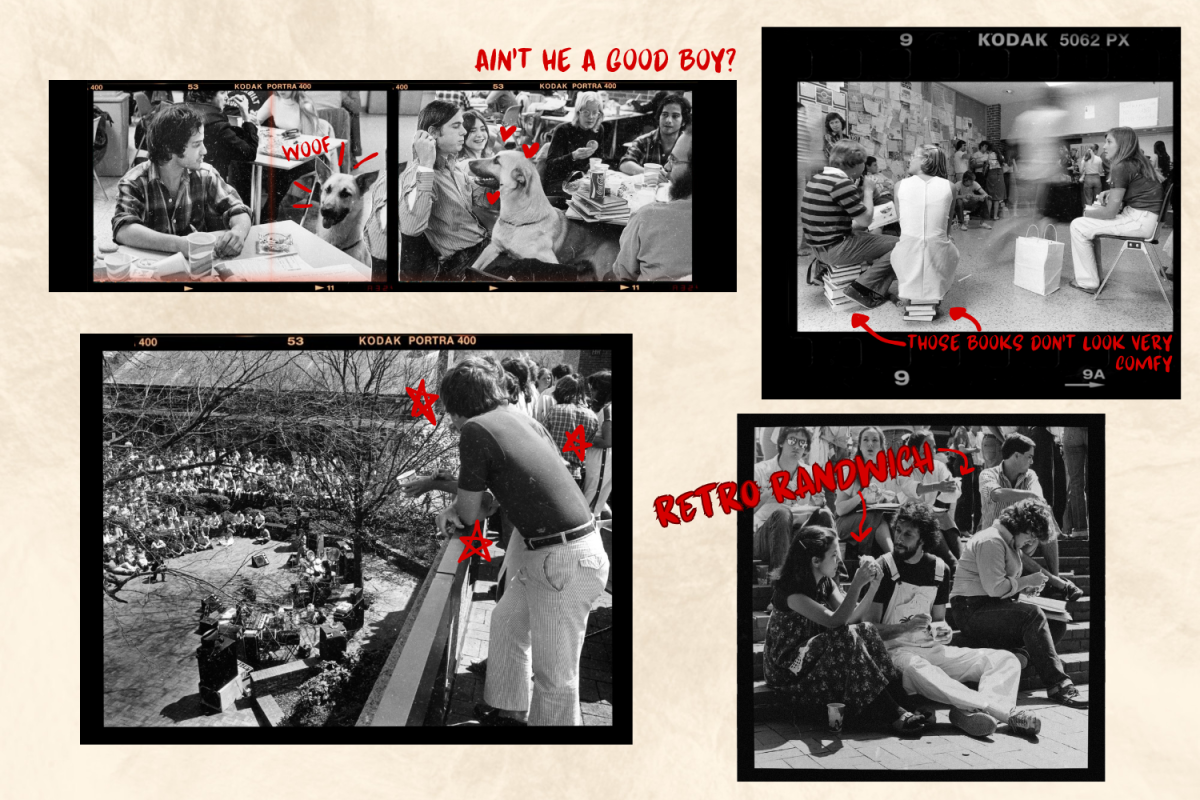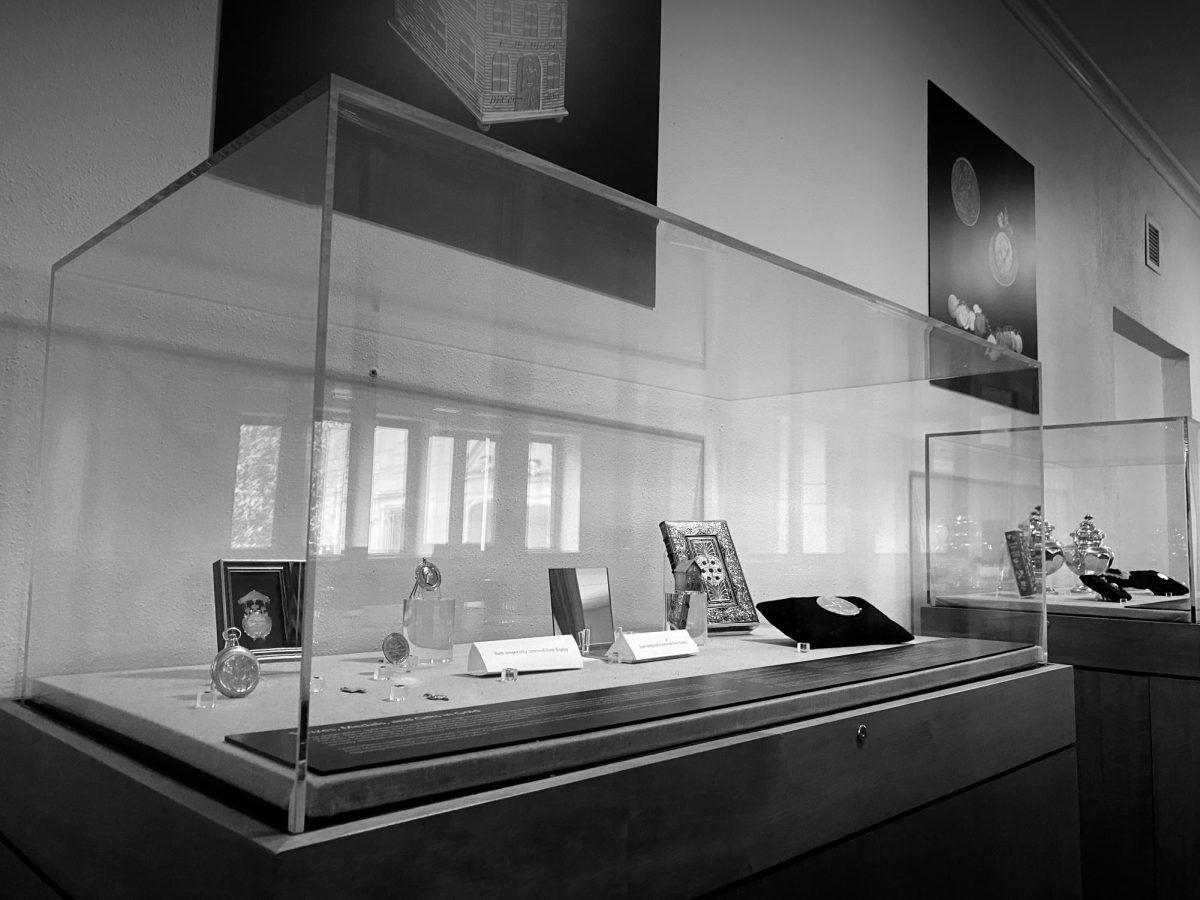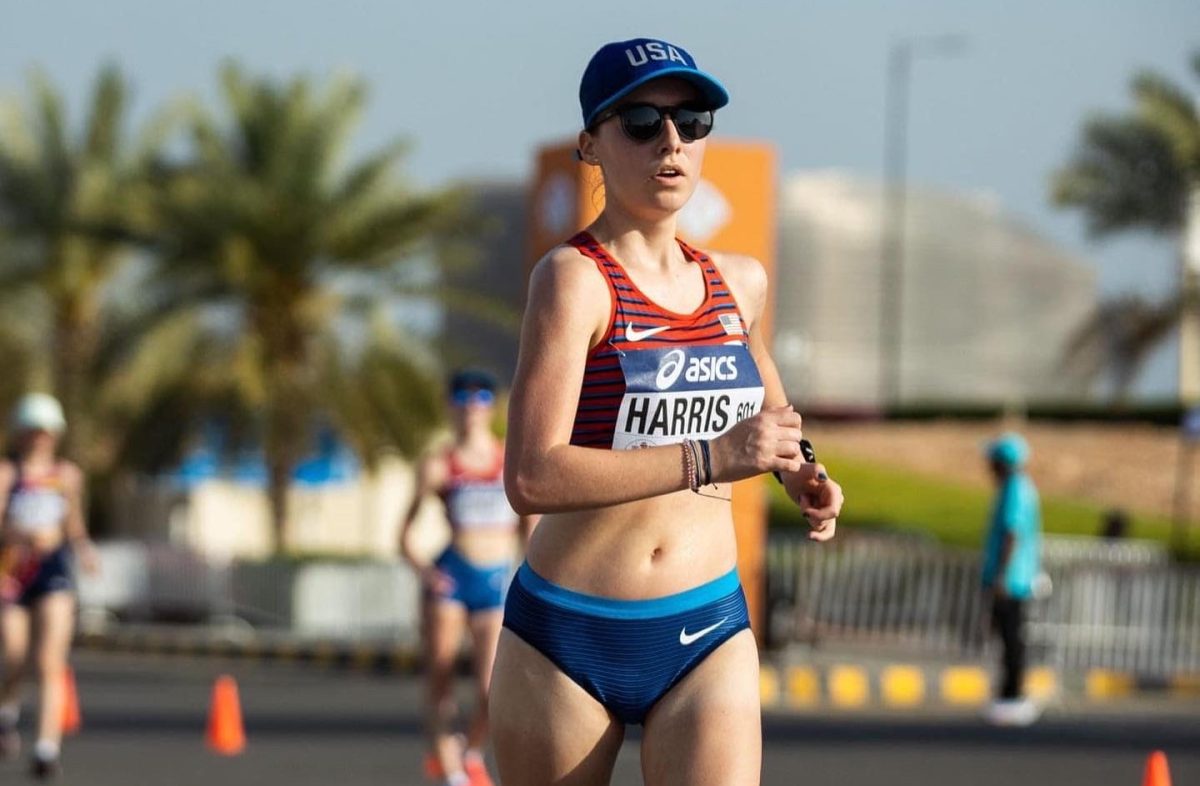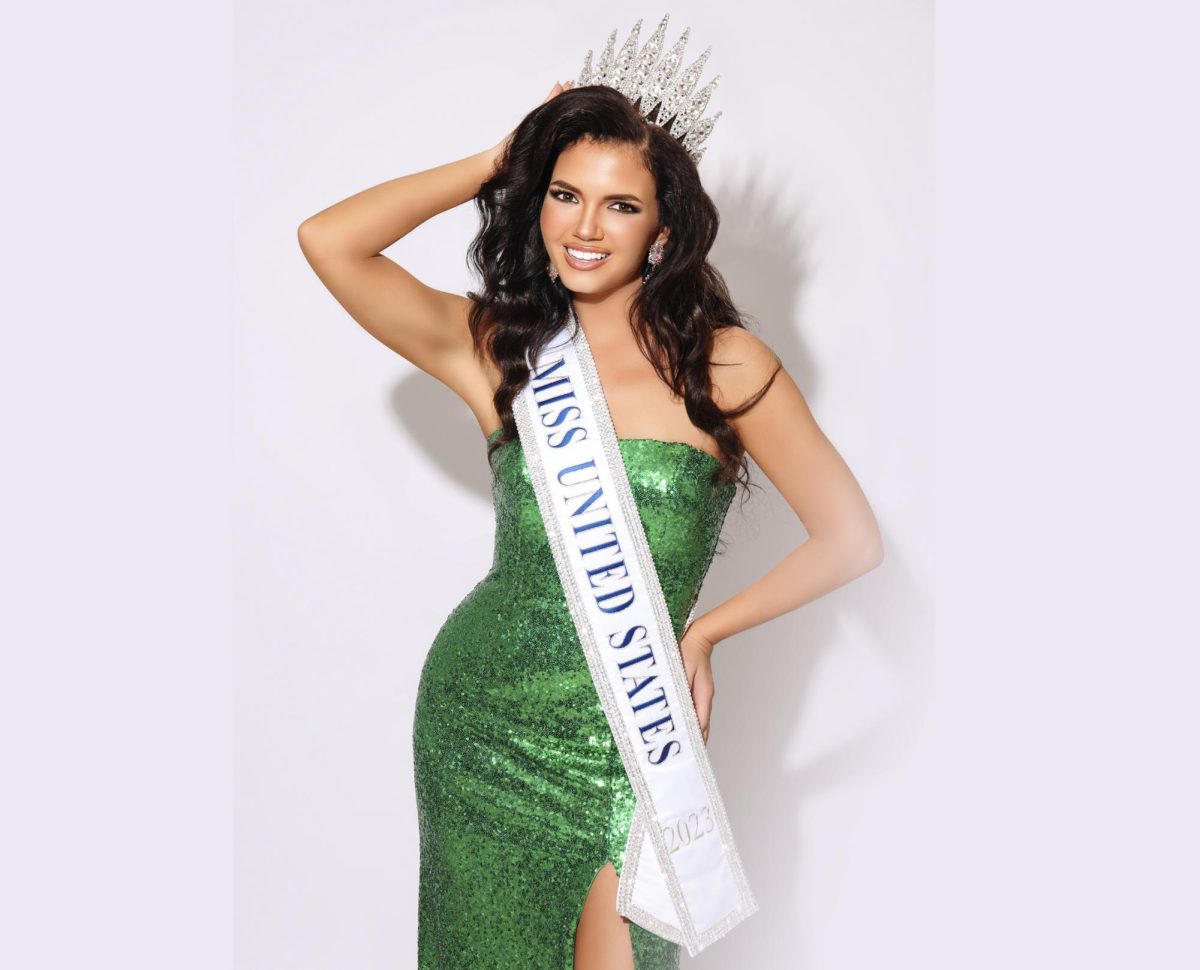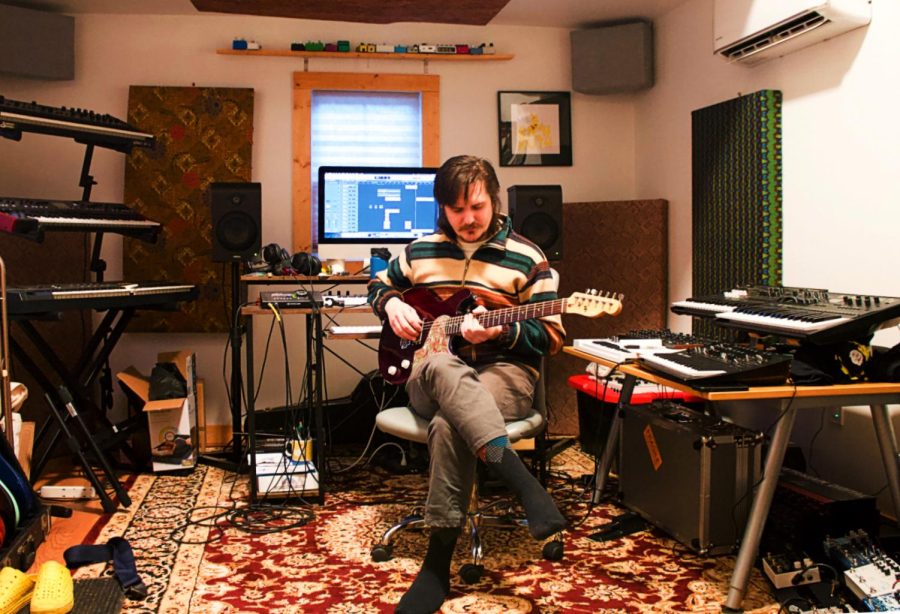Although history might not be first-year Daniel Ardity’s favorite subject, he’s made it a point to redefine how it will be shared in the future. The podcast “UnTextbooked,” which Ardity produces, arose from the convergence of the pandemic, the election and widespread social activism of 2020 to make engaging discussions of America’s overlooked past.
“Some of the reasons we get to where we are is because we let history repeat itself; we fail to recognize the similarities,” Ardity said. “UnTextbooked’s mission is to really understand the past, not just the concepts we learn in school, but the things people don’t talk about. If we can educate the next generation, hopefully we’ll have less of the same problems.”
The podcast—created by teens and for teens— is focused on covering pieces and voices of history that rarely breach classroom conversations. Ardity is one of the 15 diverse and talented students picked from around the country that was invited to contribute to this podcast.
“Once I met the 14 other kids, I was excited to hear that none of them were history nerds, most of us don’t even like history,” Ardity said. “Maybe the reason we all hate history so much is because people are terrible at teaching it, so [we thought] let’s make it in a way that’s fun.”
Ardity plans on studying Economics and Public Policy while at Vanderbilt. He said he did not enjoy his experience taking AP World History in high school, and he isn’t even a regular podcast listener. But when an involved friend outside of Vandy asked if Ardity would like to become a part of “UnTextbooked,” the podcast’s unique format and mission convinced him.
Ardity agreed to the opportunity in June 2020 amidst a climate of social activism. Originally unsure about what to cover, the social media conversation about allyship (which Ardity considers to be virtue signaling) sparked his memory of a previous summer lecture he had attended during which he learned about the hidden history of the civil rights movement, in particular the Jewish role in securing civil rights.
The lecture became relevant this summer, when he had a chance to hold an interview with distinguished Professor of History at Trinity College, Cheryl Greenberg, on his topic of Black and Jewish relations during the civil rights movement, something that Ardity connected to himself as a Jewish-American.
“I decided to talk about a piece of history that I didn’t believe very many people knew about,” Ardity said. “My thought process was that the topic is interesting, it’s history that people haven’t heard of and I’ll make it relevant. There’s no better time to learn about allyship.”
Ardity recorded his interview with Professor Greenberg on Aug. 11, but the episode aired Dec. 3. A lot of preparation went into the 25 minute episode, but it wasn’t everything; the best points of the podcast were non-scripted, according to Ardity. He had a general outline of the content he wanted to cover and in what order, but he was open to learning new things about the topic, he said.
“I wasn’t expecting to learn that the concept of alliance was a sham,” Ardity said. “It was closer to a strategic political relationship. When Black and Jewish interests aligned they were able to get the most out of each other, and the reason why their relationship collapsed was because their interests no longer aligned.”
Eleven episodes are available to listen on Apple podcasts, Spotify and Google podcasts. Each episode features diverse topics that reflect the interests and perspective of the individuals creating them, including episodes entitled “The forgotten mothers of American gynecology,” “Germany addressed its racist past. Can America do the same?” and “When did Americans become so dependent on processed foods?”
So far, the feedback for “UnTextbooked” is primarily positive, and Ardity recognizes the niche that this podcast fills with its teen voices. Yet, the podcast does face a challenge in promotion, something that Ardity is working as a part of the organization’s marketing team.
“The hardest part is just getting our name out there when we don’t have that much to start with,” Ardity said. “We sort of have to put our name out there by producing episodes, but those episodes will only do so well with that brand, so it’s kind of like that chicken and egg story.”
Balancing his role at “Untextbooked” with Vanderbilt coursework and extracurricular involvement has not been an easy task, per Ardity. While the podcast plans on a second season, he might take a step back in its production and focus on the marketing side. Still, he says his production experience at “UnTextbooked” has changed the way he views history.
“I learned that I have to take history in a non-traditional way,” Ardity said. “As long as I make it different, I’ll still be interested in it. Who knows? Maybe I’ll take a history class here at Vanderbilt.”

